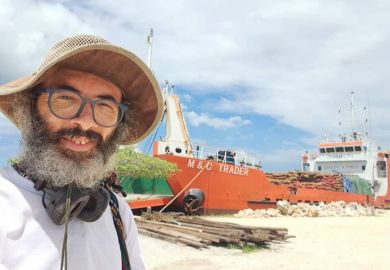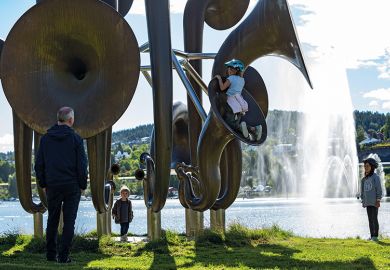A researcher who was fired for refusing to travel by plane has been awarded a payout after reaching an agreement with his former university.
Gianluca Grimalda, a climate researcher at the Kiel Institute for the World Economy (IfW), was dismissed from his research role at the university after he refused to return to Germany by plane from his fieldwork in Papua New Guinea.
The researcher and self-described “slow traveller”, who opts to travel by rail, road and sea in a bid to cut down on carbon dioxide emissions, had originally been supported by IfW to return to Germany by slow travel. However, a disagreement erupted after IfW ordered Grimalda to return by plane when he failed to show up in Kiel on an agreed date.
He was dismissed from his role, in what was the first known case of an employee being fired for refusing to take a plane to reduce greenhouse gas emissions.
But now Grimalda and IfW have accepted the settlement proposed by the Kiel Regional Labor Court, which was agreed on during an appeals process. Grimalda’s original lawsuit for unfair dismissal was rejected last February.
The settlement stipulates that the contract was terminated because of “incompatible ideological convictions between the parties”, Grimalda said. The termination by IfW was repealed, he added, and it agreed to exonerate him from any breach of contract.
While the exact settlement has not been disclosed, Grimalda said that he will donate €75,000 (£63,000) from his severance pay towards “environmental and climate protection and climate activism”. Some of the money will go towards the legal battles of members from Just Stop Oil and Extinction Rebellion.
Grimalda said that he was grateful that the judgment “implicitly recognised the impossibility of dismissing an employee because of his refusal to take a plane”.
“I hope that my case will inspire more employees, institutions and companies to actively support the transition from fossil fuel-based economies to decarbonised and people-centred societies,” he said.
Grimalda said he was “determined” to continue with his research, despite no longer working at the university.
Jörn Broschat, who defended Grimalda in the lawsuit, added that the case was a “milestone” in emerging discussions about the rights of employees and climate obligations.
“It is time for lawmakers and collective bargaining parties to take these beliefs more into account and enshrine them as labour rights. This is just the beginning of undoubtedly numerous labour law decisions that will address the complex interplay between climate change and the interests of employees and employers,” he said.
IfW has been contacted for comment.
Register to continue
Why register?
- Registration is free and only takes a moment
- Once registered, you can read 3 articles a month
- Sign up for our newsletter
Subscribe
Or subscribe for unlimited access to:
- Unlimited access to news, views, insights & reviews
- Digital editions
- Digital access to THE’s university and college rankings analysis
Already registered or a current subscriber?








